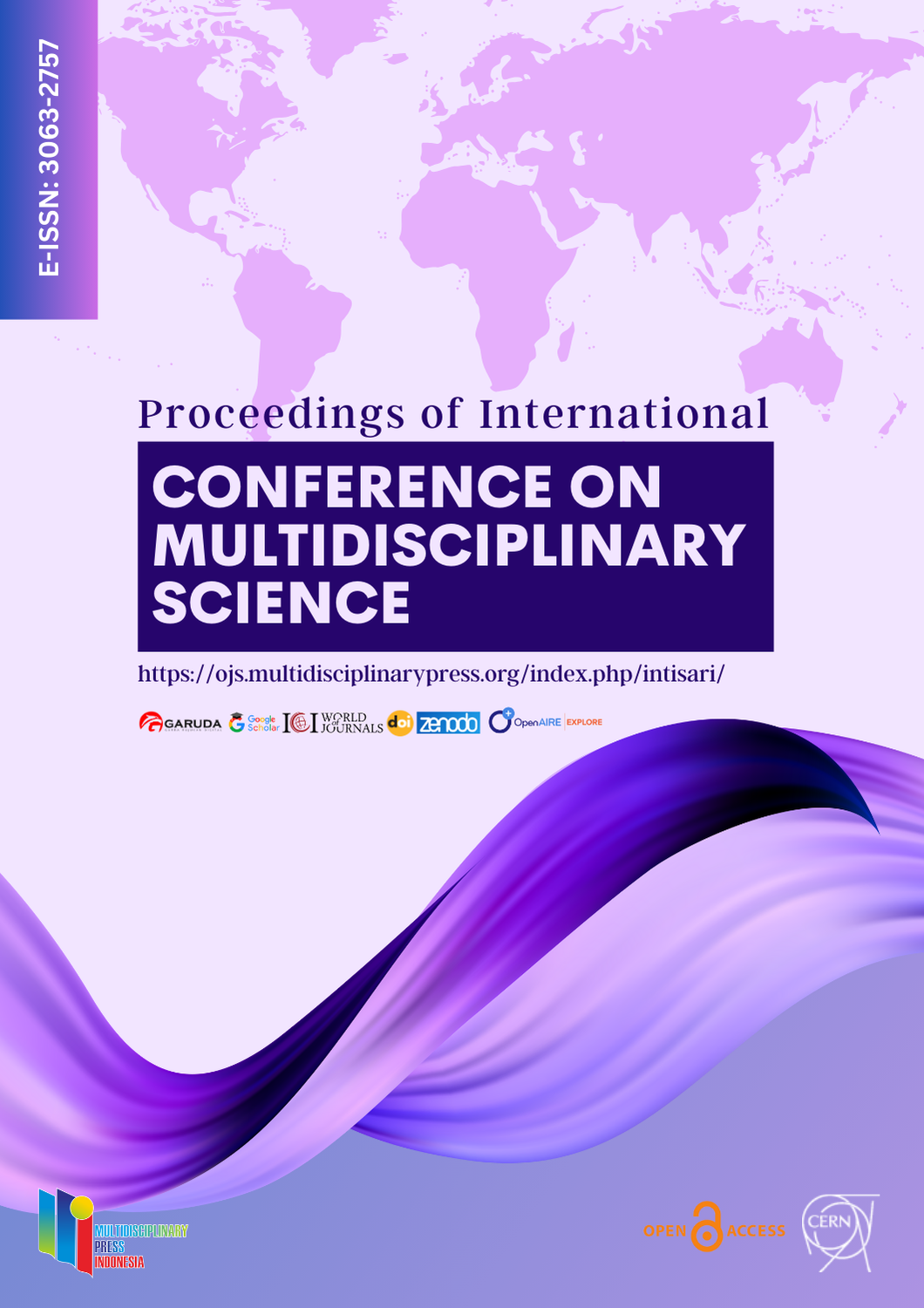Optimization of Job Satisfaction Through Competencies
Keywords:
Work Environment, Flexibility, Competence, Job SatisfactionAbstract
This research is useful for looking at the influence of work environment, flexibility on job satisfaction and competence.This research took as its object a BPJS Employment company office, Pematang Siantar and Kisaran Branches. The lack of work environment at BPJS Employment Pematang Siantar and Kisaran Branches can also affect work flexibility, because these two things have a close continuity. The conditions of the work environment around the research actually have several problems for the employees who work there. Employee discomfort at work will certainly affect employee flexibility so that the satisfaction of company officials will certainly have an influence. Even though the assessment of the work environment is again a personal assessment of each employee, in general, in fact it does have an influence on work flexibility and job satisfaction. Several things that happened at BPJS Employment Pematang Siantar Branch and Kisaran Branch were the lack of communication between employees and even between employees and superiors, which was one of the reasons for the poor working environment. This lack of communication between employees will cause new problems that will affect work flexibility and possibly even more employees' future. The results of this research are as follows:Work Flexibility has a positive and insignificant effect on Job Satisfaction with an original sample value of 0.161 and a p value of 0.154. Work Flexibility has a positive and significant effect on Competency with an original sample value of 0.786 p value 0.000. Competency has a positive and significant effect on Job Satisfaction with an original sample value of 0.583 and a p value of 0.000. Work Environment has a positive and significant effect on Job Satisfaction with an original sample value of 0.193 and a p value of 0.016. Work Environment has a positive and significant effect on Competency with an original sample value of 0.165 and a p value of 0.016. Job Flexibility has a positive and significant indirect effect on Job Satisfaction through Job Satisfaction with a value of 0.457 and a p value of 0.000. Work Environment has a positive and significant indirect effect on Job Satisfaction through competency with an original sample value of 0.096 and a p value of 0.000.
Downloads
References
Alex, S. & Nitisemito, S. (2015). Manajemen Personalia (Manajemen Sumber Daya Manusia) (Edisi Kelima, Cetakan Keempat belas). Ghalia Indonesia, Jakarta.
Arikunto, S. (2014). Prosedur Penelitian. Rineka Cipta, Jakarta.
Badriyah, M. (2015). Manajemen Sumber Daya Manusia (Cetakan 1). CV Pustaka Setia, Bandung.
Cynthia Novita Hidayat. (2015). Pengaruh Lingkungan Kerja dan Motivasi Kerja Terhadap Kinerja Karyawan Kantor PT. Keramik Diamond Industries. AGORA, 3(2), 78-83.
Ghozali, I., & Latan, H. (2015). Partial Least Squares: Konsep, Teknik, dan Aplikasi dengan Program Smart PLS 3.0. Universitas Diponegoro, Semarang.
Handoko, T. H. (2017). Manajemen Sumber Daya Manusia (Edisi Revisi). Bumi Aksara, Jakarta.
Kezia Sarah Abednego et al. (2014). Pengaruh Schedule Flexibility Terhadap Turn Over Intention Dengan Kepuasan Kerja Sebagai Variabel Perantara di Surabaya Plaza Hotel. Jurnal Universitas Kristen Petra, Surabaya, Indonesia.
Moorhead, G., & Griffin, R. W. (2014). Perilaku Organisasi. Salemba Empat, Jakarta.
Mulyadi. (2015). Implementasi Organisasi. Gadjah Mada University Press, Yogyakarta.
Robbins, S. P. (2015). Perilaku Organisasi. Salemba Empat, Jakarta.
Sugiyono. (2014). Metode Penelitian Pendidikan: Pendekatan Kuantitatif, Kualitatif, dan R&D. Alfabeta, Bandung.
Sujarweni, V. W. (2018). Metodologi Penelitian: Pendekatan Kuantitatif dan Kualitatif.
Downloads
Published
How to Cite
Issue
Section
Categories
License
Copyright (c) 2024 Lasber Manullang, Mesra B

This work is licensed under a Creative Commons Attribution 4.0 International License.





